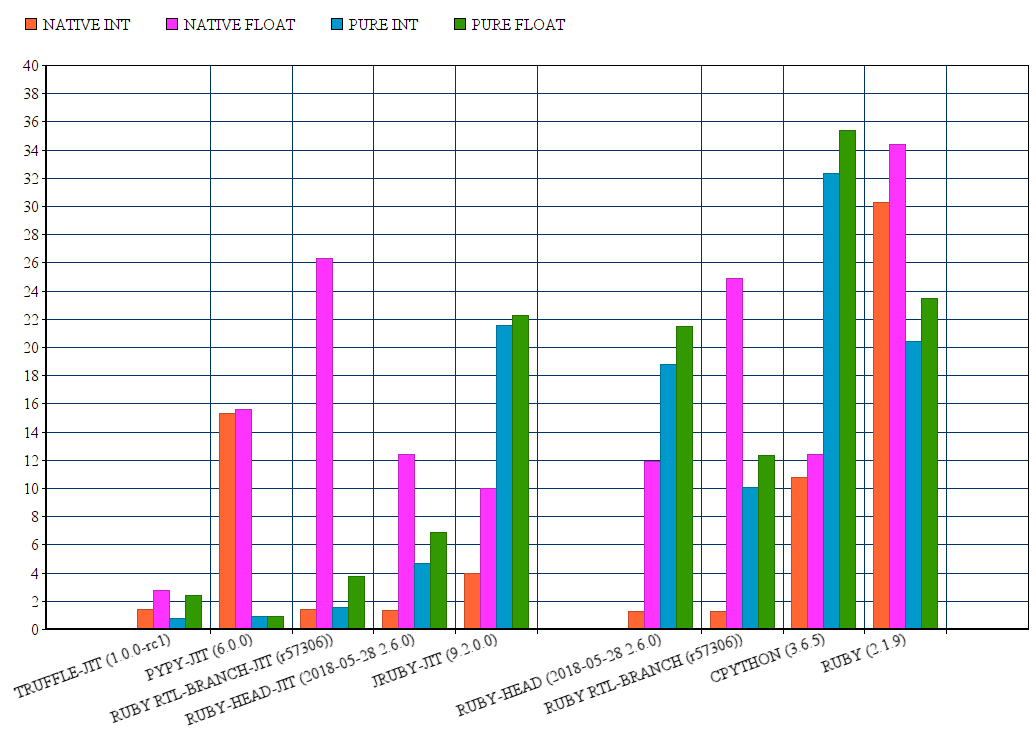Feature #14794
closedPrimitive arrays (Ruby 3x3)
Description
dynamic arrays in ruby can contain various object types:
[1, 1.0, 'text', Object.new]
however if I create a primitive array, let say only with integers (very common case). It should be more efficient.
[1, 2, 3]
let me show you an example. I have an array and I want to find a maximum. I can use a native method(:max) or a naive pure ruby implementation.
I expect that the native function will always be much faster because it’s written in C right?
require 'benchmark/ips'
arr_int = Array.new(50000) { rand 10000 }
def max_ruby(arr)
max = arr[0]
size = arr.size
i = 1
while i < size
if arr[i] > max
max = arr[i]
end
i += 1
end
max
end
benchmark.ips do |x|
x.report('native') { arr_int.max }
x.report('pure') { max_ruby(arr_int) }
x.compare!
end
here's a comparsion chart of different ruby & python's runtimes (lower is better)

as expected on ruby 2.6, the native function was faster.
Let’s compare it if we use a JIT
native – no difference
pure ruby – sometimes even faster than native
It's because JIT can't do anything with native functions (inlining, type checks etc.). Native fuctions should be as fast as possible.
MRI implementation of rb_ary_max
https://github.com/ruby/ruby/blob/trunk/array.c#L4335
for (i = 0; i < RARRAY_LEN(ary); i++) {
v = RARRAY_AREF(ary, i);
if (result == Qundef || OPTIMIZED_CMP(v, result, cmp_opt) > 0) {
result = v;
}
}
this is great for mixed arrays, but for primitive arrays it's quite ineffective. C compiler can't optimize it.
1/ unbox it if possible, don't dereference objects and load it in chunks
2/ if <=> is not redefined, we can use a simplier algorithm
3/ it’s a trivial example that can be written in SIMD #14328, there's even a special instruction for it https://software.intel.com/en-us/node/524201
C compiler can do it for us, but this metod it too complex for auto-vectorization and the data type isn't known during compile time.
Array max is just an example, but the same strategy could be applied for many other methods.
I found a great article about it, check it out.
http://tratt.net/laurie/research/pubs/html/bolz_diekmann_tratt__storage_strategies_for_collections_in_dynamically_typed_languages/¶
I think this feature could speed-up real ruby applications significantly and it shouldn’t be very hard to implement. We also don't have to change ruby syntax, define types etc. No compatibility issues.
Files
